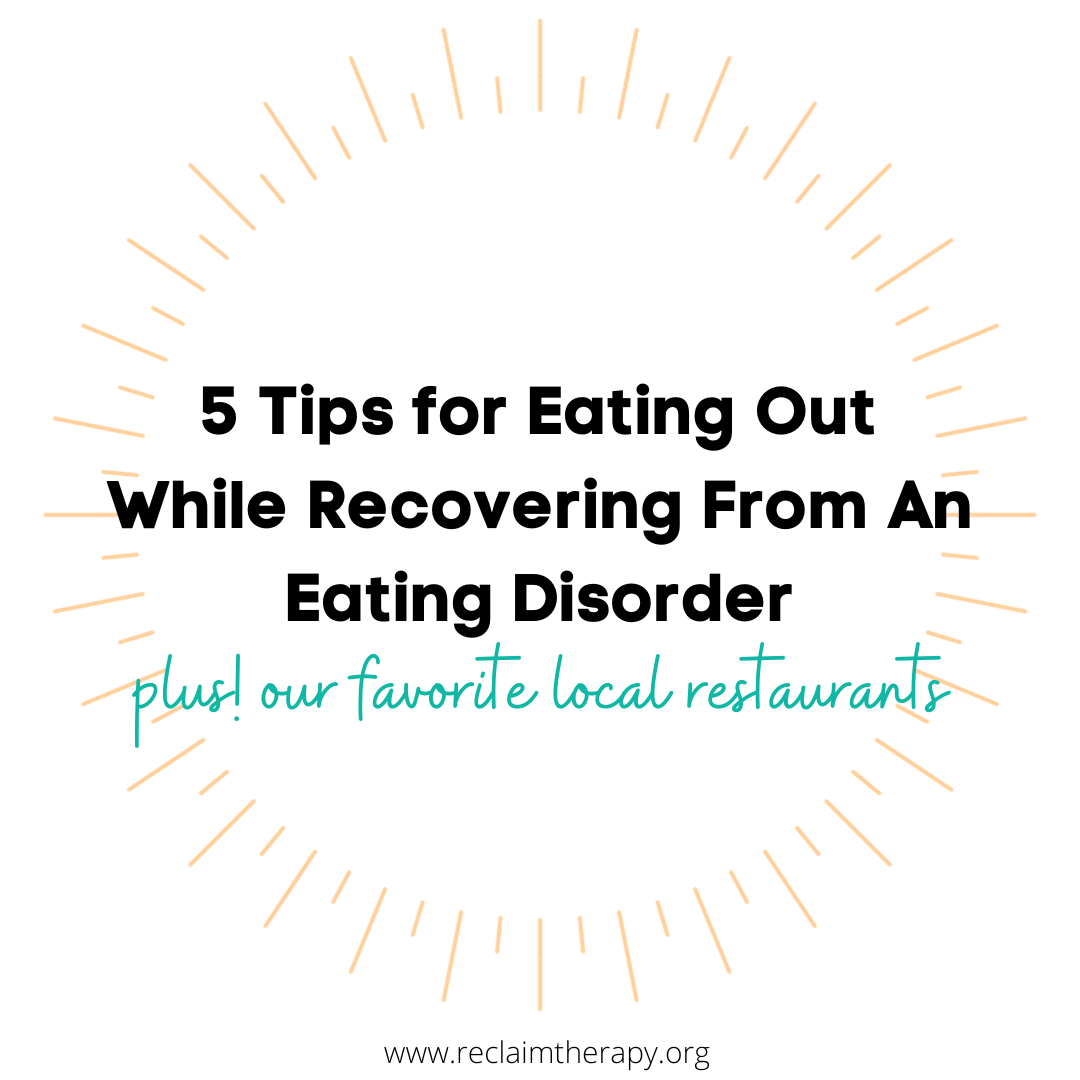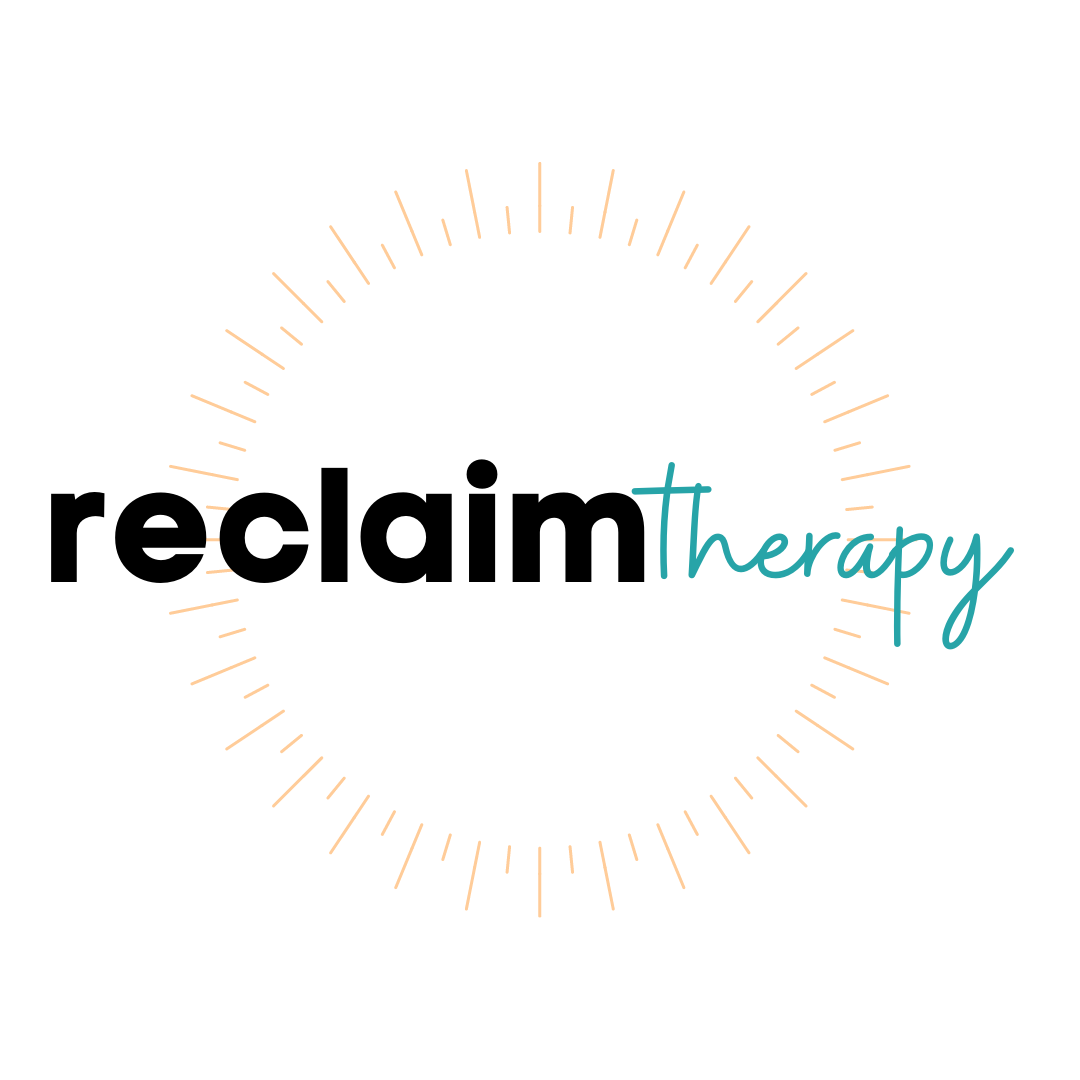
Reclaim Safety: How to Navigate Medical Appointments
We go to the doctor’s office in search of healing, but for many of us these encounters can be sources of distress.
We may have suffered a lifetime of anti-fat bias and carry blame and shame. Past traumatic events may be retriggered by medical appointments.

Exploring Your Relationship With Social Media
I have a chaotic relationship with social media. It’s an on-again, off-again relationship.
On the one hand, I’m grateful.
I am grateful for the ways in which it keeps me connected to loved ones when I’m not able to be with them physically.

What are the 8 stages of EMDR?
EMDR works by leveraging the brain's natural ability to process and integrate traumatic memories. When someone experiences a traumatic event, the memory of that event can become "stuck". This often causes nervous system dysregulation and ongoing distressing symptoms such as flashbacks, nightmares, and heightened anxiety.

What is Atypical Anorexia Nervosa? Signs, Symptoms, Support
Eating disorders can manifest in a number of ways.
In last week’s podcast episode, Medical Care and Eating Disorder Recovery, Sarah and anti-diet dietitian, Rachel Shifflet spoke about atypical anorexia. As Rachel put it, “...it’s anorexia with a side of weight stigma”

Tips from a CPTSD Therapist: How to Accept Love as a Trauma Survivor
Relationships can be challenging for folks with Complex Post Traumatic Stress Disorder (Complex PTSD).
Past trauma can greatly affect your emotions and relationships, making them challenging and feel unsafe at times.

An Eating Disorder Therapist Shares Perfectionism’s Desire for a Clean Slate
The new year has always been my favorite holiday. In some ways it continues to be, but for much different reasons than in the past.
Now, I find comfort in the idea that the new year brings a calm time after the busy holiday season.

Reclaiming Resolutions According to A Trauma Therapist
As 2024 approaches, many look forward to ringing in the new year with a sense of joy and excitement.
But for many of us, New Year’s tidings come with a hefty dose of shame.

Reclaiming Movement in Eating Disorder Recovery
Through the process of recovering from an eating disorder or compulsive exercise, we learn to reconnect with the depths of our human emotional experience without fear that once led to symptom use. We see food no longer as the enemy, but as a source of nourishment and enjoyment.

How to Deal With a Dysfunctional Family
Growing up with dysfunctional family dynamics isn’t easy, to say the least. And, it can impact many different areas of your life.
Dysfunctional family dynamics refer to patterns of interaction, communication, and behavior within a family unit that are unhealthy and destructive to the family unit.

Coping With Grief: Grief Counseling in Pennsylvania Can Help
Many people see the holiday season as a time of joy, celebration, and togetherness.
However, for many, it can be a poignant reminder of loss, unmet expectations, and the absence of loved ones. Read on for 8 ways to cope with grief.

How to Stop Being a People Pleaser
People-pleasing behaviors can often stem from emotionally overwhelming experiences, or trauma.
To stop trying to please everyone, it's important to understand people pleasing from a nervous system perspective.
Let's explore how the nervous system affects our stress, social interactions, and desire for connection.

Navigating the Flames: Self-Care When The World is on Fire
The amount of turmoil that we have experienced collectively over the past handful of years is significant.
As trauma therapists in Horsham, PA, we know that caring for yourself amidst the chaos has been hard at times. But, now more than ever, we know how essential it is to maintain your footing in recovery from trauma and disordered eating.

Embody Gratitude. Reclaim Joy.
Tomorrow many will gather around tables, invited to share a moment of gratitude for what life has brought since last Thanksgiving.
For some it comes easy, this way of looking at life.
But for many of us, the smiles on our faces mask myriad distressing thoughts, feelings, and sensations.

How to Respond When Someone Comments on Your Body
In eating disorder recovery, food and body comments can be truly destabilizing.
This thanksgiving, we want you to feel supported in responding, preparing to respond, or building boundaries to protect from any food and body comments that might come.

Navigating Trauma Triggers During the Holidays
Even the thought of managing trauma triggers during family gatherings can be a daunting task, especially for folks struggling with PTSD and complex PTSD.
Potential triggers vary greatly among folks who have experienced trauma due to their unique experiences, backgrounds, and sensitivities. And, like we’ve talk about, you might not even be consciously aware of all your triggers.

Attachment Styles 101
Securely attached individuals tend to feel comfortable both with emotional intimacy and independence. They trust their partners, express their needs openly, and believe their needs will be met. Secure attachment lays the groundwork for fulfilling, stable relationships.

Childhood Trauma, Overfunctioning and Disordered Eating
In the journey of recovery, we often find ourselves addressing various aspects of our lives, from disordered eating patterns to the roots of childhood trauma.
While these challenges may seem distinct, they can often intersect in unexpected ways. Understanding the connections between overfunctioning, disordered eating, and childhood trauma is a crucial step towards healing and reclaiming your life.

Healing Body Image and Body Shame With EMDR Therapy
In a world that places an undue emphasison physical appearance, many women find themselves trapped in a cycle of body shame, especially if they have experienced trauma or struggled with disordered eating.
EMDR Therapy, a powerful trauma therapy tool and approach, can support you in breaking free from the grips of body shame.

5 Tips for Eating Out While Recovering From An Eating Disorder
“Let’s go out to eat!”
A simple phrase that can bring on significant stress and overwhelm for folks who are struggling with an eating disorder.
The fear of the unknown can truly be paralyzing. And, the chatter in your head that can come alongside the fear can be truly overwhelming.

Shame & Guilt’s Role in Eating Disorder & Trauma Recovery
Shame and guilt are two complex emotions that often play a significant role in eating disorder treatment, especially for people who have experienced trauma.
Shame is a deep-seated feeling of unworthiness and self-disgust. It's the belief that something about who you are at your core is fundamentally flawed.

